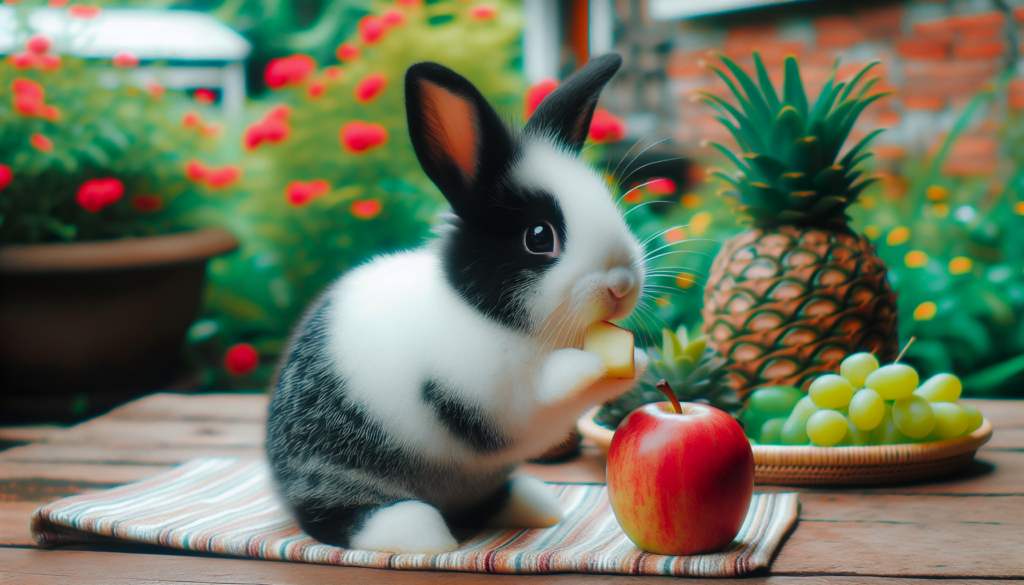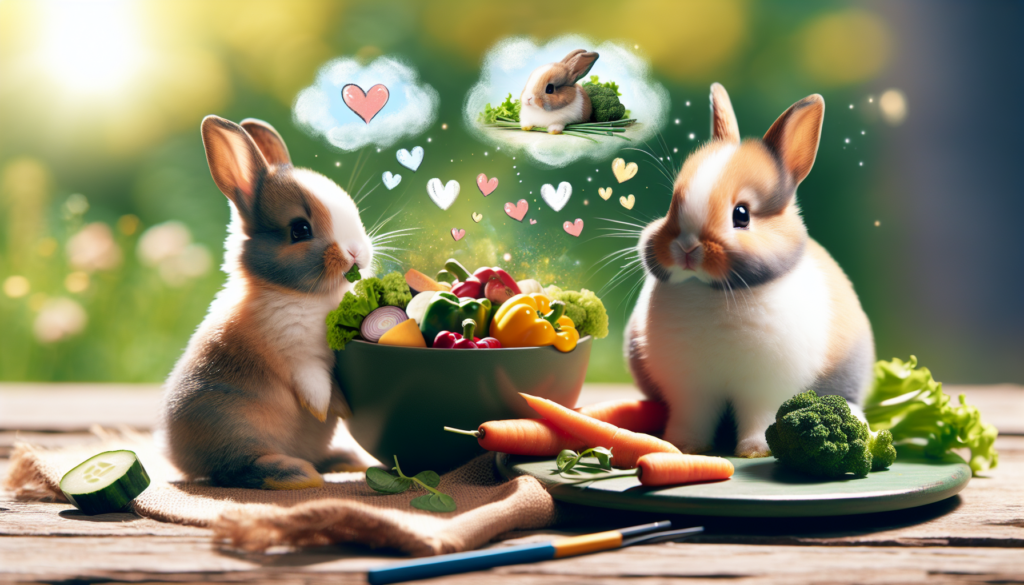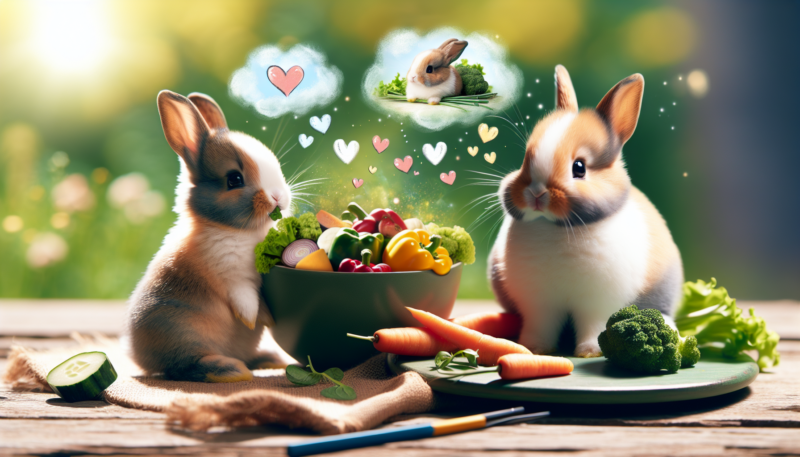Have you ever wondered how long a Dutch Rabbit can live? Well, you’re in luck! In this article, we’ll be exploring the intriguing and adorable world of Dutch Rabbits and uncovering the secrets behind their lifespan. From their origins to their care requirements, we’ll provide you with all the information you need to ensure your Dutch Rabbit lives a long and happy life. So, grab a cup of tea, sit back, and get ready to discover the fascinating lifespan of a Dutch Rabbit!

1. Physical Characteristics of Dutch Rabbits
Size and weight
Dutch Rabbits are considered to be medium-sized rabbits, with an average weight ranging from 3 to 5 pounds (1.4 to 2.3 kilograms). They have a compact and well-rounded body shape, with strong hind legs that allow them to move with agility and speed.
Coat color and pattern
One of the most distinctive and recognizable features of Dutch Rabbits is their coat color and pattern. They have a distinct marking pattern known as “pied” or “banded,” where their bodies are predominantly white with a solid-colored band that wraps around their midsection, running horizontally. The solid band color can be black, blue, chocolate, or even yellow.
Distinctive features
Apart from their unique coat pattern, Dutch Rabbits have other distinguishing physical characteristics. They have short, erect ears and bright, round eyes that are usually dark in color. Their heads are proportional to their body size, and their noses are short and straight. Overall, Dutch Rabbits have a compact, muscular build and a charming appearance.
2. Factors Affecting Lifespan
Genetics
Genetics play a significant role in determining the lifespan of Dutch Rabbits. Some rabbits may have genetic predispositions to certain health conditions or diseases that can affect their overall lifespan. Responsible breeders focus on breeding healthy rabbits with good genetics to improve the chances of a long and healthy life.
Diet and nutrition
Providing a well-balanced and nutritious diet is crucial for the longevity of Dutch Rabbits. Their diet should consist of high-quality hay, fresh vegetables, and a small portion of pellets. It is essential to avoid overfeeding or providing an improper diet, as obesity and nutrient deficiencies can lead to various health problems and ultimately shorten their lifespan.
Exercise and physical activity
Regular exercise and physical activity are essential for maintaining the health and vitality of Dutch Rabbits. They should have ample space to hop, play, and explore, either in a secure outdoor area or a large indoor enclosure. Engaging in physical activities not only keeps them physically fit but also promotes mental stimulation and prevents obesity.
Environmental factors
The environment in which Dutch Rabbits live can significantly impact their lifespan. A clean and safe living space is necessary to prevent accidents, injuries, and the spread of diseases. Providing a comfortable and stress-free environment with appropriate temperature and humidity levels is also important for their overall well-being.
3. Typical Lifespan Range
Average lifespan
Dutch Rabbits have an average lifespan of 5 to 8 years. With proper care and a healthy lifestyle, some rabbits have been known to live beyond the age of 8.
Factors influencing lifespan
Several factors can influence the lifespan of Dutch Rabbits. Genetics, as mentioned earlier, play a role, as well as the quality of their diet, exercise routine, and overall healthcare. Regular veterinary check-ups, preventive measures to avoid common health issues, and a stress-free environment contribute to a longer lifespan.
Life expectancy for different genders
The lifespan of Dutch Rabbits does not significantly differ between genders. Both males and females have similar life expectancies, provided they receive appropriate care and attention.
4. Identifying a Healthy Dutch Rabbit
Physical signs
Recognizing physical signs of a healthy Dutch Rabbit is essential for their well-being. A healthy rabbit should have a glossy, clean coat with no signs of mats, bald patches, or excessive shedding. Their eyes should be bright, clear, and free from discharge. The nose should be clean and dry, and their teeth should be properly aligned and not overgrown. Additionally, their body weight should be within the normal range for their age and breed.
Behavioral indicators
Apart from physical signs, observing the behavior of a Dutch Rabbit can also indicate their overall health. A healthy rabbit should be alert and active, with a curious and playful demeanor. They should have a good appetite, drinking water regularly, and displaying normal grooming habits. Any significant changes in behavior, such as lethargy, loss of appetite, or aggression, may indicate health concerns and should be addressed promptly.
Veterinary evaluations
Regular veterinary evaluations are crucial for ensuring the health and well-being of Dutch Rabbits. A qualified veterinarian should perform periodic check-ups to assess their overall health, catch any potential health issues early on, and provide appropriate preventive care measures. Veterinary evaluations may include physical examinations, dental checks, and possible vaccinations or parasite treatments.

5. Common Health Issues and Ailments
Dental problems
Dental issues, such as malocclusion and overgrown teeth, are common in rabbits, including Dutch Rabbits. Their teeth continuously grow throughout their lives, so it is essential to provide them with proper chew toys and a diet that promotes natural wear and proper alignment of their teeth.
Gastrointestinal issues
Rabbits have a delicate digestive system, making them prone to gastrointestinal problems. Issues like gastrointestinal stasis, also known as “GI stasis,” and bloating can occur if their diet is not adequately balanced, or if they do not have enough fiber in their diet. These conditions can be severe and potentially life-threatening if not addressed promptly.
Respiratory conditions
Respiratory conditions, including snuffles and pneumonia, can affect rabbits, including Dutch Rabbits. These infections can lead to symptoms such as sneezing, nasal discharge, difficulty breathing, and reduced appetite. Providing a clean living environment, free from dust and drafts, and avoiding exposure to sick animals can help prevent respiratory issues.
Eye and ear disorders
Eye and ear disorders, such as infections or injuries, can impact the health of Dutch Rabbits. Regular inspection of their eyes and ears for any signs of redness, discharge, or swelling is important. Prompt veterinary care should be sought if any abnormalities are observed.
Parasites and infections
Rabbits can be susceptible to external parasites such as fleas, ticks, and mites, as well as internal parasites such as worms. Regular parasite prevention measures, such as proper hygiene, appropriate housing, and regular veterinary care, can help prevent infestations and infections.
Other potential health concerns
Dutch Rabbits, like any other breed, can also be prone to various other health concerns, including urinary tract problems, reproductive issues, and certain cancers. Early detection through regular veterinary check-ups and prompt treatment can help manage and prevent these health issues.
6. Early Life Care and Development
Proper diet and nutrition
Providing a proper diet and nutrition from an early age is crucial for the healthy development of Dutch Rabbits. Young rabbits should have access to unlimited amounts of hay, fresh vegetables, and a small portion of pellets appropriate for their age and size. Gradually introducing a wide variety of vegetables helps them develop a well-rounded diet.
Managing socialization
Socialization plays a vital role in the early life care and development of Dutch Rabbits. Gentle handling and supervised interactions with humans and other animals help them become well-adjusted, friendly, and confident pets. Providing them with safe and stimulating environments also allows them to explore, learn, and develop their natural instincts.
Preventing common developmental issues
Proper care during the early stages of a Dutch Rabbit’s life can help prevent common developmental issues. Avoiding overfeeding, providing appropriate exercise opportunities, and ensuring a clean and hygienic environment can contribute to their healthy growth and development. Regular veterinary check-ups can help identify any potential issues that may need to be addressed.
7. Maintaining a Healthy Lifestyle
Appropriate diet
Maintaining a healthy diet for Dutch Rabbits throughout their lives is essential for their overall well-being. A diet rich in high-quality hay, fresh vegetables, and a small portion of pellets provides essential nutrients and promotes proper digestion. Regularly monitoring their food intake and adjusting the diet as needed to maintain a healthy weight is crucial.
Exercise and enrichment
Regular exercise and mental stimulation are crucial for maintaining a healthy lifestyle for Dutch Rabbits. Providing access to a secure and spacious area for them to hop, dig, and explore not only helps keep them physically fit but also satisfies their natural instinctual behaviors. Offering a variety of toys and puzzles can provide mental enrichment and prevent boredom.
Regular veterinary check-ups
Regular veterinary check-ups are vital for maintaining the health and well-being of Dutch Rabbits. These check-ups allow veterinarians to assess their overall health, identify any potential health concerns, and provide appropriate preventive care measures. Vaccinations, parasite prevention, and dental checks are important aspects of these regular check-ups.
Maintaining a clean living environment
A clean and hygienic living environment is crucial for the health and well-being of Dutch Rabbits. Regularly cleaning their housing, providing fresh bedding, and removing feces and uneaten food helps prevent the buildup of harmful bacteria or parasites. It is also important to avoid exposing them to drafts, extreme temperatures, or potentially toxic substances.
8. Tips for Increasing Lifespan
Balanced and nutritious diet
Providing a balanced and nutritious diet is key to increasing the lifespan of Dutch Rabbits. Ensuring they have access to high-quality hay, fresh vegetables, and appropriate pellets helps prevent nutritional deficiencies and promotes overall health. Avoiding excessive treats and sugary foods is also crucial to prevent obesity and related health issues.
Proper dental care
Maintaining proper dental care is essential for increasing the lifespan of Dutch Rabbits. Regularly monitoring their dental health, providing chew toys, and ensuring they have a diet that promotes natural wear of their teeth helps prevent dental problems and the need for invasive dental procedures.
Regular exercise and mental stimulation
Regular exercise and mental stimulation are important factors in increasing the lifespan of Dutch Rabbits. Providing opportunities for them to engage in physical activities and offering toys and interactive play can keep them active, mentally stimulated, and prevent obesity-related health issues.
Minimizing stress and anxiety
Minimizing stress and anxiety is crucial for increasing the lifespan of Dutch Rabbits. Creating a calm and secure environment, avoiding sudden loud noises or sudden changes, and providing a routine can help reduce stress levels and promote overall well-being.
Ensuring a safe and secure living space
Creating a safe and secure living space is essential to increase the lifespan of Dutch Rabbits. Their housing should be escape-proof and free from potential hazards. Regularly inspecting their living area for any potential dangers, such as harmful plants or toxic substances, helps prevent accidents and injuries.
9. Senior Dutch Rabbits and their Needs
Age-related health concerns
As Dutch Rabbits age, they may become more prone to certain age-related health concerns. These can include arthritis, dental issues, decreased mobility, and organ-related problems. Regular veterinary check-ups and adjustments to their diet or exercise routine can help manage these concerns and maintain their quality of life.
Adapting the environment
Adapting the environment to meet the needs of senior Dutch Rabbits is important. Providing ramps or low-profile litter trays can help them navigate their living space comfortably. Soft bedding or additional warmth may be necessary to keep them comfortable if they experience joint stiffness.
Supporting mobility and comfort
Supporting the mobility and comfort of senior Dutch Rabbits is crucial for their well-being. Providing comfortable resting areas and ensuring easy access to their food and water bowls can help alleviate any discomfort or difficulties they may experience.
Adjusting diet and exercise routines
As Dutch Rabbits age, their diet and exercise routines may need adjustments. Their diet may need to be modified to accommodate any specific health issues, and their exercise routine may need to be gentler to avoid strain or injuries. Consulting with a veterinarian who specializes in exotic animals can provide guidance on these adjustments.
10. Coping with Loss and Grief
Understanding the grieving process
Coping with the loss of a Dutch Rabbit can be a challenging and emotional experience. It is important to understand that grieving is a natural process and individuals may go through different stages of grief, such as denial, anger, sadness, and acceptance. Each person’s grieving process may be unique, and it is essential to allow yourself time and space to mourn.
Seeking support and resources
During times of loss and grief, seeking support from friends, family, or support groups can be beneficial. Sharing your feelings and experiences with others who have gone through similar situations can provide comfort and understanding. Online resources, books, or counseling services specialized in pet loss can also provide helpful guidance and support.
Memorializing your Dutch rabbit
Creating a meaningful memorial for your Dutch Rabbit can help in the grieving process and provide a way to honor their memory. This can involve creating a picture album, writing a heartfelt letter, planting a tree or flowers in their honor, or even donating to a rabbit rescue or welfare organization. Choosing a method that holds personal significance can bring a sense of peace and closure.
